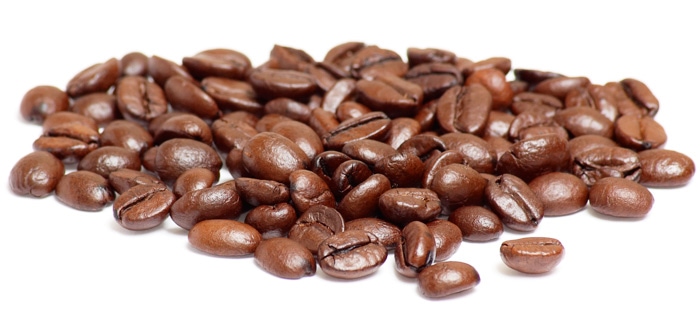
Written By: Christina Newberry
Reviewed By: Gloria Tsang, RD
Title: Registered Dietitian
Last Updated on:

Mmm… coffee. If you’re like most Americans, you like it. A lot. More than half of us drink at least one cup of coffee every single day.
It seems there’s often conflicting information in the news about whether or not coffee is actually good for you. So, let’s take a look at the nutrition data and see what we find!
Table of Contents
1 cup (8 fl oz) of black coffee contains:

Coffee’s main health benefit is its antioxidant content. In fact, according to researchers from the University of Scranton, coffee is the number one source of antioxidants in the American diet. Decaf coffee appears to provide as much of an antioxidant punch as regular coffee. Coffee’s ORAC score is 15,000 to 17,000 – one of the highest levels of any food.
The caffeine in coffee may help reduce the chance of developing Parkinson’s Disease and protect against gallstones. Regular coffee drinkers will not be surprised to know that caffeine has also been shown to increase alertness, enhance mood, temporarily improve physical stamina, and relieve headaches.
Moderate coffee consumption has also been associated with a reduced rate of type 2 diabetes and a lowered risk of Alzheimer’s Disease.
Of course, moderation is important. Too much caffeine can cause sleep troubles and may cause fertility difficulties for women who are trying to become pregnant.
If possible, buy whole beans and grind them at home to get the freshest cup. You’ll maximize the antioxidant content, plus your coffee will taste better, so you won’t have to add as much milk and sugar to make it palatable. Dark roast coffee appears to deliver more antioxidants than light roast coffee.
Bottled iced coffee drinks tend to contain loads of added sugar, so avoid these and stick to hot coffee – or make your own iced coffee at home – instead.
You probably don’t need help including more coffee in your diet, so let’s look at ways to include healthier coffee in your diet instead.
Alumni: University of Victoria – Christina Newberry is a writer and editor whose work has appeared in national and local magazines and newspapers. With a Bachelor’s degree in English and Anthropology from the University of Victoria and a Journalism Certificate from Langara College, Christina brings keen curiosity and the love of a good story to her work with HealthCastle.com.
Christina is a passionate traveler and urban gardener with an interest in vegetarian eating and making good, tasty food from scratch. Sharing lessons learned from her own experiences, Christina writes about lifestyle topics for HealthCastle, with a focus on eating well at home and on the road.
antioxidant, beverages, coffee, healthy every month, orac